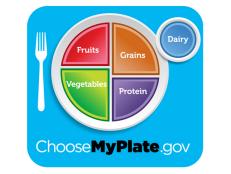Should You Be Taking a Supplement?
Just because it feels like everyone else is, doesn't necessarily mean you should.

Strauss/Curtis/Getty
There are supplement ads left and right that claim to help with everything imaginable, from skincare to gut health. It can feel overwhelming and leave people feeling confused about whether or not supplements are necessary — and wondering which ones they should even consider taking.
Do You Need a Supplement?
The answer is, it depends. Not everyone needs to take supplements, and it’s important to get a full medical evaluation with lab work to assess whether or not you could benefit from taking certain supplements. Taking supplements without enough information or professional guidance can result in unpleasant side effects and potential overdosing. Some supplements can also interfere with certain medications.
Who Should Take Supplements?
If you suspect you have a vitamin or mineral deficiency, it’s important to bring that information to your provider, so they can run the proper lab testing to confirm the deficiency. If you are deficient, your provider can determine the best supplement dose based on your lab values. Dosing is incredibly important to consider with all supplements because some products deliver mega doses that your body may not need. This can be dangerous and may cause unpleasant side effects.
There are instances where it’s challenging to meet all nutritional needs through food. For example, during pregnancy, nausea and vomiting can impact food intake. Similarly, digestive conditions can negatively impact nutrient absorption regardless of the foods you eat. Generally speaking,though, supplements are intended to supplement nutrition. Supplements should not be a replacement for balanced meals, which provide a range of most, if not all, of the vitamins and minerals your body needs. If you have a deficiency, aside from supplementing, aim to also include foods rich in the nutrients your body needs.
Which Supplements Are Right for You?
In addition to deficiencies, supplements can also help provide support for certain symptoms or health conditions. They may target sleep quality, menstrual pain, joint inflammation and others. I recommend getting as specific as possible with what it is you need support with. If you’re having digestive issues, what exactly are those issues and how do they show up in your body? This way when you meet with a health professional, they can give you the proper recommendations for your unique needs. There are so many types of supplements for any given condition and the more specific you are, the more you’ll be able to narrow down which product is the right fit.
It’s also important to do your research before taking a supplement because although beneficial, some supplements contain inaccurate labeling. I love using LabDoor, which does independent testing for supplements and then scores products based on label accuracy, product purity, nutritional value, ingredient safety and efficacy.
Bottom Line
Supplements can be an excellent way to correct deficiencies and support your health goals, however they should never be taken blindly. Consult with your provider to see what products are the best fit for your needs and always do your research through evidence-based resources and platforms. There is an endless list of products making unsupported claims and it’s important to be as informed as possible.
As a registered dietitian/nutritionist and Certified Diabetes Educator, Wendy Lopez, MS, RDN, CDCES is passionate about accessible and culturally relevant nutrition education. She is the co-host of the Food Heaven Podcast, and the co-founder of Food Heaven, an online platform that provides resources on cooking, intuitive eating, wellness and inclusion. When not working on creative projects, Wendy also provides nutritional counseling and medication management to patients with diabetes.
*This article was written and/or reviewed by an independent registered dietitian nutritionist.
Related Links:

































